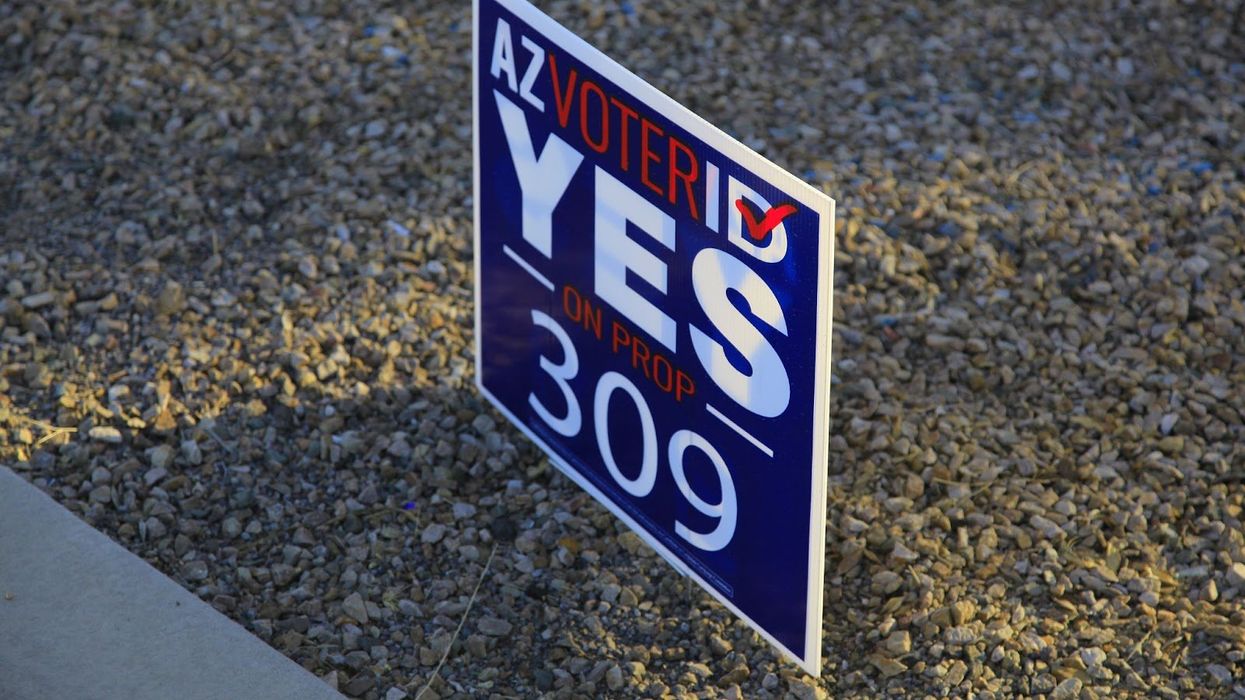In the four years since former President Donald Trump’s unsuccessful attempt to overturn the 2020 election through false claims of voter fraud, Republicans across the country have intensified efforts to enact new restrictions on voting they argue will strengthen election security.
Georgia’s Election Integrity Act of 2021 drew special attention for its provisions that some viewed as suppressive, including sections substantially narrowing the window for voters to request a mail-in ballot and requiring additional identification for absentee voters. President Joe Biden led a chorus of Democratic officials sounding the alarm on the Georgia law, calling it “Jim Crow in the 21st century.”
North Carolina and Wisconsin, two other swing states, also have strict voter ID laws on the books from Republican-backed legislative initiatives. While Wisconsin’s dates back to 2011, North Carolina only began implementing its legislation in 2023, when the state Supreme Court overturned its own decision that had struck down the 2018 measure for racial discrimination.
According to Marjorie Hershey, a professor emeritus of political science at Indiana University, Republicans theorized that “less educated people and low-income people are more likely to vote Democratic, and because they are the least likely to vote overall, the tougher you make voting the more likely you are to exclude them from the final results.”
Yet, in the build-up to the 2024 presidential election, polling has consistently shown Trump leading among infrequent voters and those without a college degree.
A recent NBC News poll found that Vice President Kamala Harris has a 14-point advantage over Trump among white college graduates, while Trump led by 32 points among white voters without a college degree — margins that mirror Biden’s estimated splits against Trump in 2020.
New York Times/Siena College polling from before Biden dropped out of the race showed Trump leading by 10 points among voters who had never previously voted in a primary or midterm, while Biden had a 4-point edge with all other voters.
Given that low-propensity and non-college-educated voters have shifted toward the Republican Party, some have suggested that voter ID laws may now benefit Democrats. Journalist Matthew Yglesias recently made that case in a post on X (formerly Twitter). “Liberals have been slow to wake up to the fact that the low-propensity voters are now Republicans and there’s no reason to take an unpopular stand against voter ID laws,” Yglesias wrote.
Could voter ID laws in fact shut out votes from an increasingly important demographic within Trump’s base?
“Republicans have spent so long trying to make it difficult for people to vote, and yet now it’s almost turned around to the point where irregular voters lean more Republican,” Lakshya Jain, co-founder of the election forecasting website Split Ticket, said. “It’s definitely one of the stranger things I’ve seen.”
However, Jain said it was hard to conclude what the practical impact of the laws would be. “It really depends on how targeted these [laws] are in terms of effects by race,” Jain said. “If these disproportionately impact Black people, you’re going to get a pro-Republican effect.”
The question of whether voter ID laws impact overall voter turnout has been studied by political scientists for years, but little conclusive evidence has emerged.
“It’s been a very controversial topic in political science,” Marc Meredith, a professor of political science at the University of Pennsylvania and senior analyst on the NBC News Decision Desk, said. “While there may be important effects of voter ID laws on certain individuals’ ability to vote, there is not much evidence that the typical voter ID law has much of an effect on aggregate turnout.”
Meredith said examples of voters who might struggle to vote under new restrictions include students in states where student IDs are not considered valid voter IDs (such as Arizona, Ohio and Texas) and individuals who recently moved to a state but haven’t yet obtained a driver’s license. “Many of these variables are not that clearly tied to party in the first place,” he said.
Meanwhile, Hershey mentioned the existence of studies that found turnout increasing among groups who perceived they were being suppressed because, she said, “those folks get pissed off.”
To the extent that voter ID laws do suppress the vote, Hershey said, pollsters are not cleanly capturing the political sentiments of those who would be most affected because the “non-college” category still encompasses a wide range of educational experiences and income levels.
“Those folks at the very bottom of the educational scale and the income scale tend to still vote Democratic,” Hershey said. “It’s just they don’t vote very much.”
Both parties remain desperate to turn out voters who lean in their direction ideologically but rarely engage in politics. While the extra hurdles introduced by recent election laws may present a risk for Republicans, their ultimate impact remains unclear.



















 From left to right: Gabriel Cardona-Fox, Bud Branch, Joe Concienne
From left to right: Gabriel Cardona-Fox, Bud Branch, Joe Concienne 